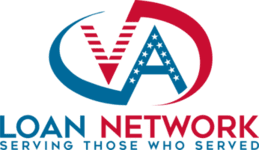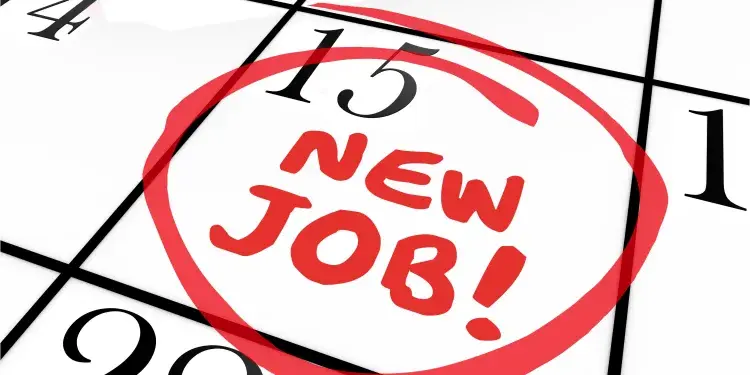Changing jobs mid-VA loan process is a common concern for veterans and active-duty service members aiming for seamless home financing.
While stable employment and income continuity play a major role in VA loan approvals, a well-planned job change can still keep you on track for closing.
This guide explores every angle—whether you’re moving to a higher-paying role, transitioning from military to civilian status, or starting a new business.
You’ll learn how lenders assess your work history, what documents are needed, and which best practices ensure a smooth approval. By taking proactive steps, you can minimize disruptions and secure your ideal home.
Why Employment Matters in VA Loan Approval
Under the U.S. Department of Veterans Affairs guidelines, employment stability is a critical factor in determining a borrower’s ability to repay a VA mortgage. Lenders typically examine your recent two-year employment history, income patterns, and overall financial profile to gauge risk. Even though a VA loan is government-backed, lenders still want assurance that you can consistently make your monthly mortgage payments.
When you change jobs during the VA loan process, you introduce new variables—such as a probationary period, changing pay structures, or industry shifts. Lenders must verify that this change won’t undermine your income stability. The good news? Not all job changes are dealbreakers. Your next move could even strengthen your application if it increases your income and aligns with your career trajectory.
Key Considerations for Different Employment Types
Full-Time Salaried Positions
Moving from one full-time salaried role to another is typically the smoothest scenario. If the new job offers higher or comparable pay, it can bolster your application. Lenders usually request an offer letter, proof of income (such as a pay stub), and verification of employment (VOE) to confirm the details.
Hourly and Part-Time Work
An hourly or part-time position might trigger additional scrutiny since monthly income can vary based on hours worked. Lenders often look at average hours over several pay periods and may want to see a stable schedule. If you’re switching to a similar role with consistent hours, the impact on your VA loan approval is generally minimal.
Contract or Seasonal Employment
Contract and seasonal roles raise bigger questions about long-term stability. While these positions aren’t automatically disqualifying, lenders want to see a track record of earnings in that line of work. Documenting repeat contracts or consecutive years in seasonal employment can help ease lender concerns.
Self-Employment
Under VA loan self-employment rules, you typically need to show two years of steady self-employed income through tax returns, profit-and-loss statements, and business documentation. If you shift to self-employment mid-application, you may face significant hurdles unless you can provide thorough documentation. Some borrowers choose to postpone starting a business until after closing to avoid complications.
Military Service and Transitions
Military service members often encounter frequent relocations and duty changes. If you’re active-duty and have Permanent Change of Station (PCS) orders or if you’re transitioning to civilian life, prompt communication with your lender is crucial. For those transitioning from military to civilian roles, an offer letter or employment contract showing immediate, stable income is generally required.
Income Sources and Their Impact on VA Loan Approval
Different income sources carry different weight in VA loan underwriting. Even if your base pay changes slightly, you may have other earnings to strengthen your application:
- Base Pay: The most consistent and preferred income type for lenders.
- Bonuses and Commissions: Lenders want a two-year average of these earnings. If your new job has variable pay, expect closer scrutiny.
- BAH (Basic Allowance for Housing): For active-duty military, this can be included as income if it’s expected to continue.
- Military Disability Benefits: VA disability income is generally non-taxable and considered stable if documentation is provided.
- Second Jobs or Side Gigs: Must demonstrate a track record of at least a year (ideally two) for the additional income to count.
In cases where you’re switching roles with variable compensation structures, lenders will look for consistent earnings over time. If you have just started a commission-based job, for instance, you may have to wait until you can document stable income before final underwriting approval.
Stages of the VA Loan Process Affected by a Job Change
Pre-Approval
During VA loan pre-approval, lenders perform an initial review of your credit, income, and employment history. If you change jobs right after getting pre-approved, the pre-approval letter might no longer be valid—especially if it significantly affects your income or stability. It’s wise to consult your lender about “can I change jobs after VA loan pre-approval?” before making any moves.
Underwriting
Underwriting is where your lender verifies all documentation. Job changes during underwriting can cause delays as you’ll likely need to provide updated pay stubs and employment verifications. If your new position has a probationary period or variable pay structure, underwriters may request additional proof of income before giving the green light.
Closing
Many lenders perform a final “verification of employment” just days before closing. A sudden or undisclosed job change can jeopardize funding at the last minute. Ideally, avoid any employment changes within 30 to 60 days of closing unless absolutely necessary—and always inform your lender immediately if a job change is unavoidable.
How Lenders Evaluate a Mid-Process Job Change
While VA guidelines set overarching standards, lenders have the final say in whether to approve your loan. Here are the most common factors they review when you change jobs:
- Continuity and Stability: Are you staying in the same industry or moving to a related role with proven career progression?
- Income Level and Structure: Does your new position offer a higher salary, or is it commission-heavy? Lenders want consistency.
- Employment Type: Full-time, part-time, or contract? Stable, permanent roles are seen more favorably.
- Documentation: Offer letters, pay stubs, and contact details for your new employer help verify your earnings quickly.
- Debt-to-Income Ratio (DTI): If your income decreases, your DTI may spike, making approval harder. If it increases, your file often becomes stronger.
Common Job-Change Scenarios and Likely Impact on VA Loan Approval
| Scenario | Impact on Approval | Key Lender Considerations |
|---|---|---|
| Same Industry, Higher Pay | Low Risk | Seen as positive; requires updated income documentation |
| Same Industry, Similar Pay | Minimal Impact | Likely seamless if no gap in employment |
| New Industry, Equal/Higher Pay | Moderate Risk | Additional verification needed to show long-term stability |
| New Industry, Lower Pay | Higher Risk | Could raise DTI; may need compensating factors (savings, high credit score) |
| Switch to Self-Employment | High Risk | Generally need two years of tax returns showing consistent earnings |
Tips for Managing a Job Change Mid-Application
- Inform Your Lender Early: The sooner you notify your lender, the faster they can pivot and gather the necessary documents.
- Time Your Transition Strategically: If possible, delay major career shifts until after closing. Otherwise, ensure no employment gaps exceed 30 days.
- Strengthen Other Qualifying Factors: A high credit score, low DTI, and healthy savings can offset lender concerns about your job change.
- Document Everything: Keep pay stubs, offer letters, and, if self-employed, profit-and-loss statements. More documentation = fewer surprises.
- Work with a VA-Specialized Lender: Experts familiar with unique VA loan employment requirements can be more flexible and offer tailored advice.
Addressing Common Misconceptions
Myth: “A new job automatically disqualifies me.”
Truth: Not necessarily. If your new job shows income stability and is in the same industry or field, VA lenders may still approve you.
Myth: “Changing jobs with higher pay is always okay.”
Truth: Higher pay helps, but lenders also consider the nature of your role, contract terms, and whether you’re in a probationary period.
Myth: “Self-employment is never allowed.”
Truth: You can use self-employment income, but you typically need two years of stable earnings documented through tax returns.
Myth: “You need to stay at the same job from pre-approval to closing.”
Truth: You can change jobs mid-process, but it must be disclosed, and lenders will re-verify income and stability.
Myth: “You can’t qualify if you just left the military.”
Truth: Many transitioning service members qualify using a job offer letter and military pay history.
Myth: “Part-time or contract work doesn’t count.”
Truth: It can count, especially if you’ve worked in that capacity consistently for at least 12–24 months.
Myth: “VA loans don’t allow any employment gaps.”
Truth: Short gaps are usually fine if you can explain them and show current job stability or a solid re-entry into your field.
How to Communicate Effectively with Your Lender
Open communication sets you up for success. Provide your loan officer with:
- Offer Letter/Contract Details: Showing your position, start date, and compensation.
- New Employer Contact Information: Underwriters often do a verbal verification.
- Projected Pay Stubs: As soon as you start your new job, provide the latest stubs if available.
— Joe Harris, Senior Mortgage Underwriter
Special Considerations for Military Personnel
For active-duty service members, PCS orders might force a move, requiring you to secure new employment for a spouse or plan your own transition to civilian life. In either case:
- Provide your PCS orders to demonstrate why you’re changing locations or leaving the service.
- If BAH is part of your qualifying income, ensure it’s documented and will continue at your new duty station (if applicable).
- If you’re exiting the military, show proof of civilian employment or a job offer letter for your next role.
These steps help lenders see that your upcoming transition is planned and financially sound.
VA Loan Employment Requirements vs. Conventional Loans
| Criteria | VA Loan | Conventional Loan |
|---|---|---|
| Employment History | 2 years of continuous history (gaps explained) | 2 years recommended, with leniency for well-documented gaps |
| Income Verification | Pay stubs, W-2s, VOE, or offer letter | Pay stubs, W-2s, tax returns (more rigid for certain job types) |
| DTI Ratio | Ideal ≤ 41%, but can go higher with compensating factors | Typically ≤ 43%, up to 50% depending on lender |
| Self-Employment | 2 years of tax returns, strong P&L statements | 2 years of tax returns, often stricter with variable income |
| Probationary Period | May delay final approval until probation ends | Often accepted with a contract or offer letter, but depends on lender |
Real-World Success Story
Consider John, an Army veteran who found a higher-paying job in software development just after VA loan pre-approval. Worried about losing the house he wanted, John immediately informed his lender. Because the new job was in a related tech field and offered a clear salary increase, the underwriter approved the change without issue. John provided his offer letter and started work two weeks before closing. With no gap in employment and a strong credit profile, the final loan documents sailed through, and John moved into his dream home on schedule.
Actionable Steps to Mitigate Risk
- Boost Credit and Savings: Aim for a credit score above 620 and maintain reserve funds to reassure lenders you have a financial cushion. However, some lenders may be able to approve a VA loan with a 580 score.
- Document Career Progression: Keep an updated resume and gather letters of recommendation if you’re shifting fields.
- Consider a Contract-to-Hire Delay: If you’re moving into a contract role, ask if you can start after closing or negotiate a direct-hire position.
- Stay Proactive in Underwriting: Respond quickly to all lender requests for documentation or clarifications.
When to Delay a Job Change
If you’re within 60 days of closing or facing a complete career pivot, it may be wise to wait until you’ve signed the mortgage documents before switching roles. Starting a new business or taking a lower-paying job can dramatically affect your VA loan approval and employment conditions. In these instances, consider locking in your home purchase first. Then, once the dust settles, you can embark on your new professional journey without risking your mortgage.
The Bottom Line
Changing jobs during the VA loan process doesn’t have to derail your path to homeownership. By planning carefully, disclosing any changes to your lender early, and strengthening other aspects of your financial profile, you can often turn a potentially risky move into an advantage. Whether you’re taking a higher-paying role, shifting industries, or transitioning from military to civilian life, the key is demonstrating consistency, stability, and a clear ability to repay the loan.
For the latest and most authoritative information, consult the U.S. Department of Veterans Affairs or talk to a specialized VA lender who stays current on evolving guidelines. Remember, every situation is unique—so align your employment strategy with your personal and financial goals to ensure a smooth journey toward owning your dream home.
Frequently Asked Questions
Can I change jobs during the VA loan process?
Yes, you can, but lenders will evaluate job stability, income type, and whether the new role is in a similar field. You’ll need to provide updated documentation, such as offer letters or pay stubs, to maintain your loan eligibility.
Does a probationary period affect my VA loan approval?
It can. Lenders may view probationary periods as increased risk, especially if the job is new or outside your usual career field. Strong financials and continuous work history can help offset concerns during underwriting.
Can I get a VA loan with a new job in a different industry?
Changing industries can complicate things. Lenders prefer job continuity in the same field. If your new job has higher pay and stable terms, you may still qualify, but additional documentation or delays could occur.
Is self-employment accepted for VA loan income?
Yes, but you typically need two years of steady self-employment income in the same field, verified by tax returns. Shorter timeframes may be considered with strong compensating factors and underwriter approval.
Will a job change delay my VA loan closing?
It might. Lenders must re-verify employment and update your loan file, especially if the change happens during underwriting. Promptly providing all required documents helps avoid significant delays.
Can I use a job offer letter to qualify for a VA loan?
Yes, particularly for military members transitioning to civilian roles. The offer must be non-contingent, include salary details, and start within 60 days of closing. Lenders may require proof of assets to cover that interim.
What if I become a contractor instead of a W-2 employee?
Contract work is eligible but often treated like self-employment. You’ll need a longer work history—usually two years—and consistent income to qualify. Gaps or project-based pay may raise underwriting concerns.
Does the VA have specific employment rules?
The VA doesn’t restrict job changes, but lenders do. VA loan approval depends on the lender’s ability to document stable, reliable income. Each lender may interpret job changes and gaps differently.
Can I qualify for a VA loan with part-time income?
Yes, if the part-time work is consistent and documented over at least two years. Lenders want to see reliability and continuity in hours and pay before counting it toward qualifying income.
What happens if I lose my job before closing on a VA loan?
Losing your job before closing can jeopardize your loan. The lender will re-verify employment, and without income, the loan can’t proceed. A new job or proof of assets may help salvage the deal.


















